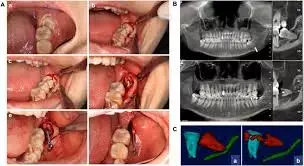- Home
- Medical news & Guidelines
- Anesthesiology
- Cardiology and CTVS
- Critical Care
- Dentistry
- Dermatology
- Diabetes and Endocrinology
- ENT
- Gastroenterology
- Medicine
- Nephrology
- Neurology
- Obstretics-Gynaecology
- Oncology
- Ophthalmology
- Orthopaedics
- Pediatrics-Neonatology
- Psychiatry
- Pulmonology
- Radiology
- Surgery
- Urology
- Laboratory Medicine
- Diet
- Nursing
- Paramedical
- Physiotherapy
- Health news
- Fact Check
- Bone Health Fact Check
- Brain Health Fact Check
- Cancer Related Fact Check
- Child Care Fact Check
- Dental and oral health fact check
- Diabetes and metabolic health fact check
- Diet and Nutrition Fact Check
- Eye and ENT Care Fact Check
- Fitness fact check
- Gut health fact check
- Heart health fact check
- Kidney health fact check
- Medical education fact check
- Men's health fact check
- Respiratory fact check
- Skin and hair care fact check
- Vaccine and Immunization fact check
- Women's health fact check
- AYUSH
- State News
- Andaman and Nicobar Islands
- Andhra Pradesh
- Arunachal Pradesh
- Assam
- Bihar
- Chandigarh
- Chattisgarh
- Dadra and Nagar Haveli
- Daman and Diu
- Delhi
- Goa
- Gujarat
- Haryana
- Himachal Pradesh
- Jammu & Kashmir
- Jharkhand
- Karnataka
- Kerala
- Ladakh
- Lakshadweep
- Madhya Pradesh
- Maharashtra
- Manipur
- Meghalaya
- Mizoram
- Nagaland
- Odisha
- Puducherry
- Punjab
- Rajasthan
- Sikkim
- Tamil Nadu
- Telangana
- Tripura
- Uttar Pradesh
- Uttrakhand
- West Bengal
- Medical Education
- Industry
Compared to surgical removal of mandibular third molars, Coronectomy significantly impacted postoperative oral health related QoL: Study

Compared to surgical removal of mandibular third molars, Coronectomy significantly impacted postoperative oral health-related QoL suggests a study published in the Journal of Oral and Maxillofacial Surgery.
Coronectomy is an alternative procedure for removing mandibular third molars near the inferior alveolar nerve. Limited research exists on the effect of coronectomy on the postoperative quality of life (QoL). This study compared postoperative QoL after coronectomy and complete surgical removal of mandibular third molars during the first postoperative week. This prospective cross-over study was conducted in the Oral and Maxillofacial Department of Amstelland Hospital, Amstelveen, The Netherlands.
The study sample consisted of patients with indications for removal of both mandibular third molars, with one at increased risk of nerve injury undergoing coronectomy, while the other molar was extracted. Exclusion criteria were ibuprofen allergy, anticoagulant therapy, systemic disease, local pathology, or failure to complete the Oral Health Impact Profile-14 (OHIP-14) questionnaire. Results: The sample included 55 patients (18 male and 37 female) with a mean age of 24.6 ± 4.7 years. Mean OHIP-14 scores during the first 6 postoperative days were significantly higher after coronectomy compared to after surgical removal (day 1: 24.93 ± 9.82 vs 22.7 ± 9.5; day 6: 11.27 ± 10.36 vs 8.49 ± 10.93) (P < .05). Pain was significantly higher on the second to sixth postoperative days after coronectomy (day 2: 6.02 ± 1.92 vs 5.78 ± 1.73; day 6: 4.11 ± 2.49 vs 3.09 ± 2.41) (P < .05).
Patients used more analgesics after coronectomy (day 2: 4.09 ± 2.53 vs 3.27 ± 1.9; day 6: 2.76 ± 2.62 vs 2.13 ± 2.49) (P < .05). They found no differences in outcomes for sex or molar impaction (P > .05). Coronectomy significantly impacted postoperative oral health–related QoL compared to complete surgical removal of mandibular third molars.
Reference:
Postoperative Outcome After Coronectomy Versus Surgical Removal of Impacted Mandibular Third Molars - Clinical and Oral Health-Related Quality of Life Follow-UpSimons, Rashida N. et al. Journal of Oral and Maxillofacial Surgery, Volume 82, Issue 9, 1109 - 1120
Dr. Shravani Dali has completed her BDS from Pravara institute of medical sciences, loni. Following which she extensively worked in the healthcare sector for 2+ years. She has been actively involved in writing blogs in field of health and wellness. Currently she is pursuing her Masters of public health-health administration from Tata institute of social sciences. She can be contacted at editorial@medicaldialogues.in.
Dr Kamal Kant Kohli-MBBS, DTCD- a chest specialist with more than 30 years of practice and a flair for writing clinical articles, Dr Kamal Kant Kohli joined Medical Dialogues as a Chief Editor of Medical News. Besides writing articles, as an editor, he proofreads and verifies all the medical content published on Medical Dialogues including those coming from journals, studies,medical conferences,guidelines etc. Email: drkohli@medicaldialogues.in. Contact no. 011-43720751


